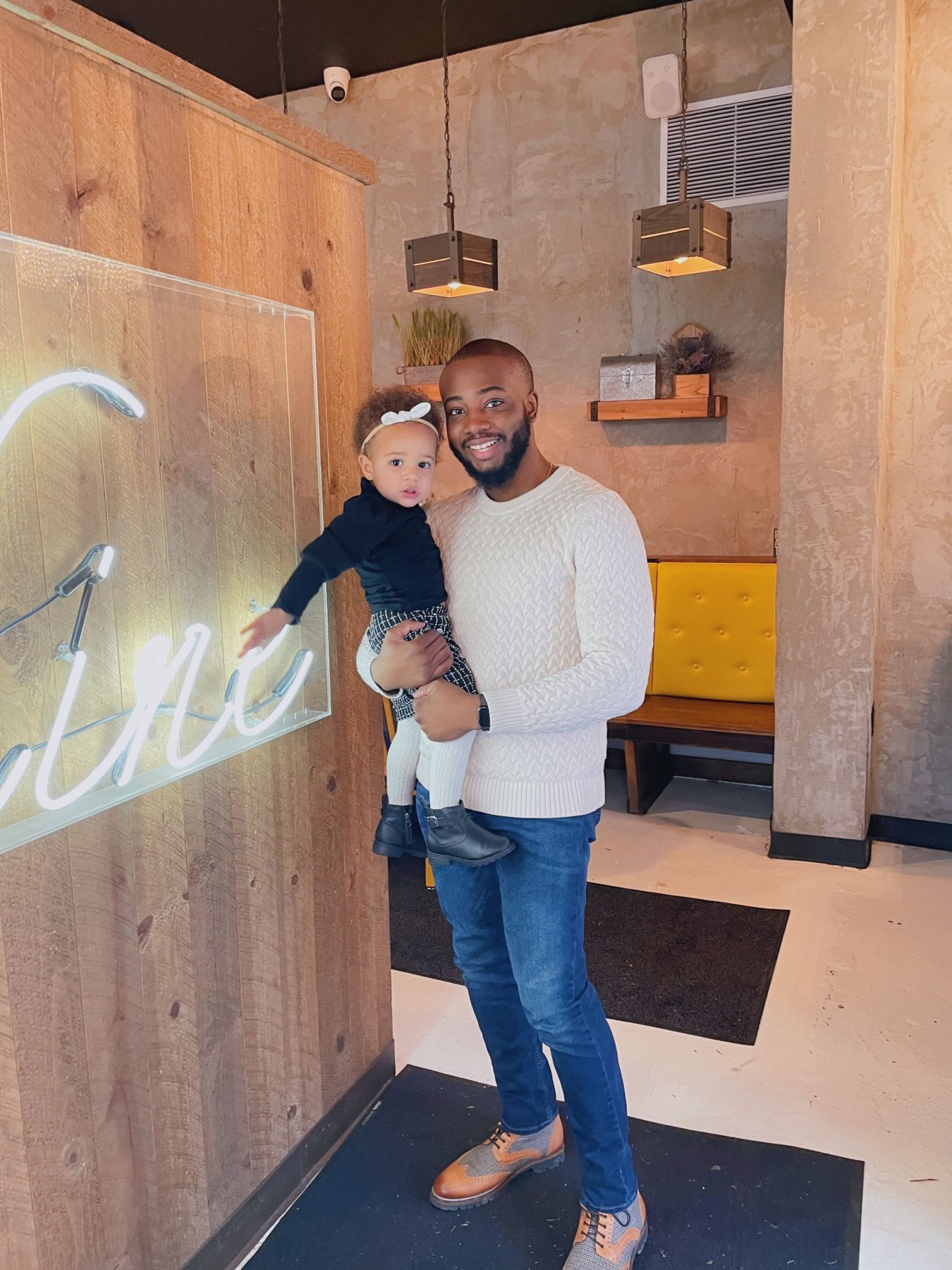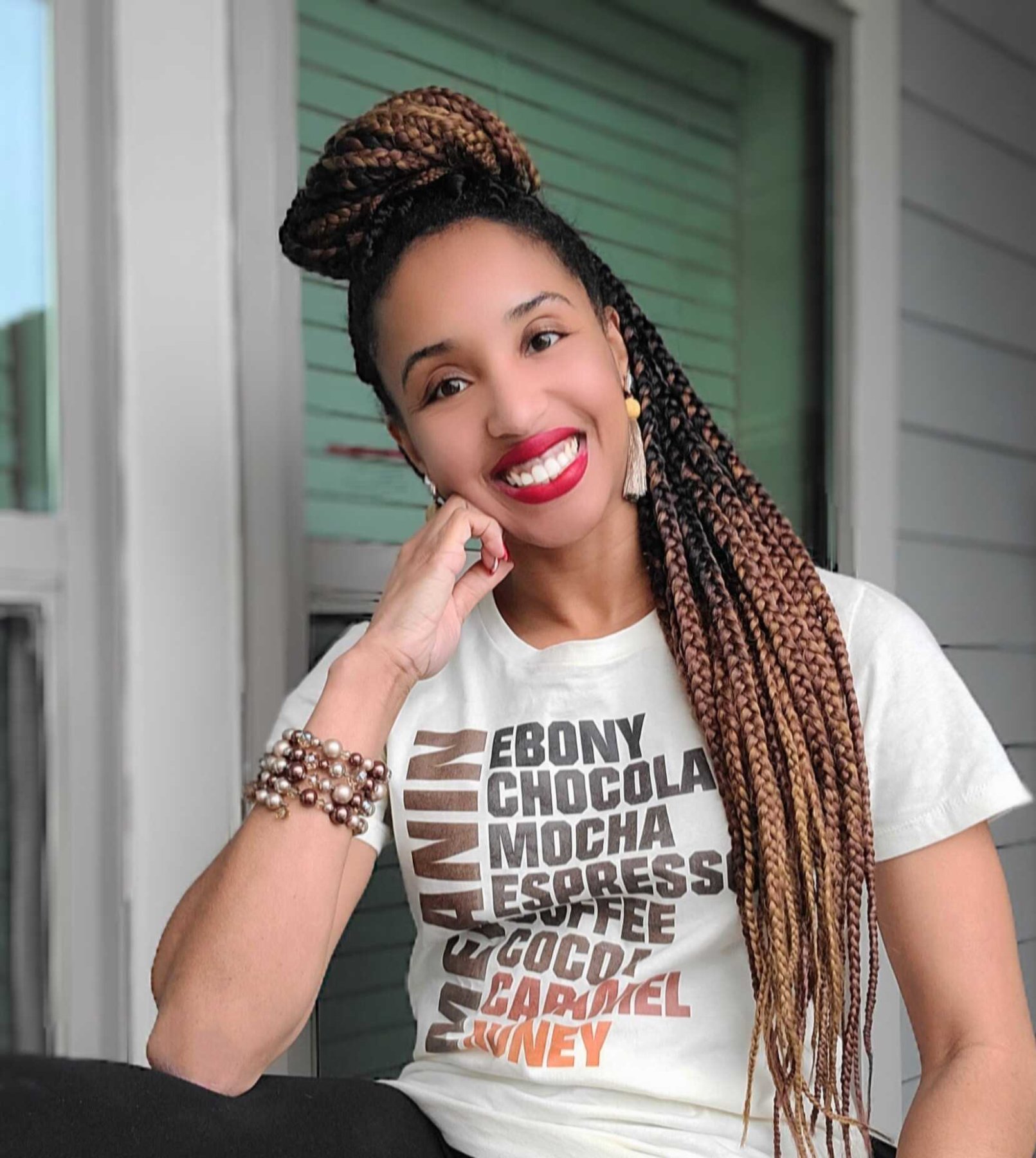Editor’s Note
Every February we celebrate Black History Month by honoring the influence and achievements of Black Americans. It’s a time to recognize the legacies of inspirational Black figures and celebrate Black culture as it exists now.
Although this month is a designated period to recognize Black history, it’s important to understand that Black history is American history, and the fight for racial equality is ongoing. This month, we encourage our employees and community members to learn about the impact Black individuals have had on our nation while facing tremendous racism and adversity.
As part of our celebration, we spoke with some members of our team, Danelle Sims, Andrea Hubbard, Juwan Anderson, and Lindsey Johnson, to learn about their favorite aspects of Black culture and their experiences as Black employees.
What Black artists, music, and literature, would you recommend/share with others?

“One of my favorite multimedia platforms is Blackarchives.co which brings a spotlight to the Black experience. I truly enjoy seeing Black culture be shared with others from various lenses throughout history. Through the platform, I can continue to see vital memories from the past while learning new ones. Through this platform, I’ve found a connection to various Black artists such as Sammy Davis Jr. and even actor Sidney Poitier.”
— Juwan Anderson, Digital Outreach Specialist
What is your favorite thing about Black culture?

“Everything. There isn’t just one thing alone that I love about Black culture; it’s all the small and big things. I love our creativity and what we can make from it, including music, art, and hair. We are constantly redefining music genres and can use art to share our knowledge with the world while still being authentically ourselves.
I love our influence in the fashion world; many trends come from us. I love our hair; our styles are so versatile and just awesome. Our hair is an expression of us; we create new styles every day, it’s constantly changing. I love all of the amazing inventions we are responsible for. I love our resilience. Our history is painful, yet we manage to find a way to thrive despite our adversities. I just love us.”
– Lindsey Johnson, Digital Content Specialist
How has your culture impacted you in the workplace?

“It can sometimes be alienating to be one of few Black people in a majority non-Black workspace. A lot of the things that co-workers often bond over — like favorite TV shows, musicians, movies, etc.— are often different from the ones that I consume on a regular basis, and my favorites are often ones that my teammates have never heard before.
I am overly aware of the way that I behave so that I am not reinforcing negative stereotypes about Black people, and I often carry the weight of having to represent my entire race at all times. This affects the way that I speak, the way that I dress, hairstyles that I choose to wear, and I often have to code-switch to make my overall personality more palatable for my non-Black co-workers
That being said, my Blackness gives me the unique opportunity to relate to my other Black coworkers. Even when I’m not working with them directly, the unwavering support that I feel from them gives me the confidence to embrace my Blackness every day and to fight for our equity in the workplace!”
– Andrea Hubbard, Sr. Digital Outreach Specialist
What are some microaggressions you’d like other professionals to watch out for?
- “Interrupting and ignoring their contributions: Unconscious bias from non-Black professionals can lead to them dismissing or ignoring the ideas of their Black co-workers — and sometimes even unconsciously claiming those ideas as their own. This can make Black employees feel undervalued and unwilling to participate in team projects.
- Claiming color blindness: While this may seem counterintuitive, claiming to be colorblind dismisses Black people’s cultural differences and experiences because it assumes that Black issues are no different from everyone else’s. Also, just because you’re from a different minority group does not mean that you automatically relate to the struggles of the Black community or that you are incapable of being prejudice. Instead, non-Black professionals should work to understand and empathize with the unique struggles that are impacting their Black co-workers.
- Assuming your Black co-workers are unfriendly or hard to work with: Black people have often been stereotyped as mean, aggressive, and problem-starters. This can have two effects on Black professionals; they either overcompensate by being overly nice and overly eager to help — which is exhausting and leads to burnout — or they can be seen as intimidating and apathetic if they don’t behave this way. Before labeling your Black coworker as mean, rude, or uninterested, ask yourself if they are really acting out of the ordinary, or is that coming from an underlying prejudice.
Although they are labeled ‘micro,’ it’s important to remember that these words and actions — whether intentional or not — can be damaging to your co-workers and should not be taken lightly.”
– Andrea Hubbard, Sr. Digital Outreach Specialist
Who is a Black figure you feel connected to or inspired by?
“Issa Rae. I think she’s someone who’s unapologetically Black and also unapologetically herself. She has never given into the stereotypes that our society has used to define Black people but has also never allowed society to “discount her Blackness” just for being different from those stereotypes. For me, that’s something that’s always been difficult to do so she’s definitely an inspiration.”
– Danelle Sims, Sr. Digital Outreach Specialist

What historical events do you feel connected to?
“I feel most connected to the African Diaspora in general just because, that was my culture, language, and way of living that was stolen from my family, essentially. It’s very important to me to know the harsh realities of slavery and oppression in America so that I can understand the magnitude of mine and other Black people’s emotions around it.
I’m thankful to now have African-American culture, but it’s sometimes hard watching people connect with their roots and I don’t know mine.”
– Danelle Sims, Sr. Digital Outreach Specialist





